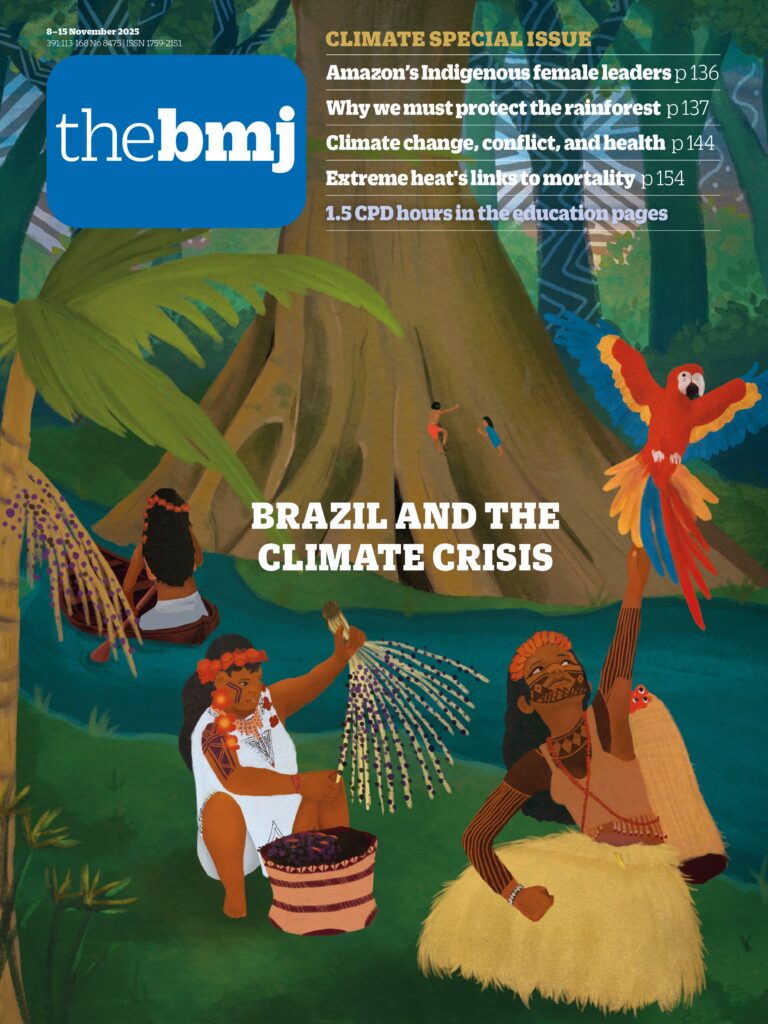England is facing one of the toughest ever winters in its history as an early wave of flu sweeps the nation, health officials warn.
Flu rates have started climbing much sooner than usual this year,1 driven largely by cases in young adults and schoolchildren.2 And experts warn that the H3N2 strain, currently dominant in cases in England, mutated seven times over the summer, making it more severe than normal.
Amid growing concern that hospitals will be overwhelmed this winter, health officials have urged all eligible groups, including people over 65, people with certain long term conditions, pregnant women, and children, to get vaccinated.
Chief executive of NHS England Jim Mackey said, “There’s no doubt this winter will be one of the toughest our staff have ever faced.
“Since stepping into this role, the thought of a long, drawn-out flu season has kept me awake at night. And, unfortunately, it looks like that fear is becoming reality.”
Mackey added, “Australia has just endured its worst flu season on record—over 410 000 cases—and all the signs suggest the NHS will face similar challenges in the months ahead. From December through to March our hospitals will be at capacity.”
In the week to 2 November hospital admissions for flu in England rose to 3.81 per 100 000 people, compared with 2.44 per 100 000 the week before, latest figures from the UK Health Security Agency (UKHSA) show.3
The UKHSA’s latest surveillance report, published on 6 November, also show that less than a third (28.9%) of the nine million people in England with one or more long term health conditions have had a flu vaccine.
As of 2 November, 61.5% of people aged 65 or over, 29.7% of pregnant women, 34.2% of children aged 2 years, and 34.3% of children aged 3 years had been vaccinated against flu this year. The UKHSA warned that vaccine uptake is currently lower among over 65s than in the equivalent week in last year’s flu season.
NHS frontline staff also seem to be shunning the flu jab this year.
In September NHS England wrote to all patient facing healthcare staff urging them to get vaccinated,4 noting its concern that staff uptake of vaccination had declined steadily year on year: from 74% in 2019-20 to just 37.8% in 2024-25.
But data show that as of 6 November less than a third of NHS staff (30.9%) had had their flu vaccination.
Poor vaccine uptake comes amid concern over the effect of the A/H3N2 strain on this year’s season.
Antonia Ho, clinical senior lecturer and consultant in infectious diseases at the University of Glasgow, said, “Of the two seasonal influenza A viruses, the current dominant circulating virus (A/H3N2) tends to cause more severe illness than A/H1N1, particularly in older adults.
“For example, in the 2022-23 winter season, when A(H3N2) was the dominant virus, there were 16 000 influenza associated deaths, compared with 8000 last winter.”
She added, “It has arrived five weeks earlier than a ‘normal’ flu season, which means a smaller proportion of the vulnerable population may have received the flu vaccine.”
However, on 11 November the UKHSA published a preprint paper suggesting that the 2025-26 vaccine is currently 70-75% effective at preventing hospital attendance in children aged 2-17 years and 30-40% effective in adults, despite the dominance of the A/H3N2 strain.5 This is broadly in line with a typical flu season. For example, last year the estimated vaccine effectiveness was 38% in adults aged 65 and above and 75% in children aged 2-17 years.6
Jamie Lopez Bernal, consultant epidemiologist for immunisation at the UKHSA, said, “These results provide reassuring evidence that this season’s flu vaccines currently offer important protection to children and adults, despite concerns about the new subclade.
“We strongly encourage all those eligible to get vaccinated against flu as soon as possible—it remains our best defence against serious illness.”

